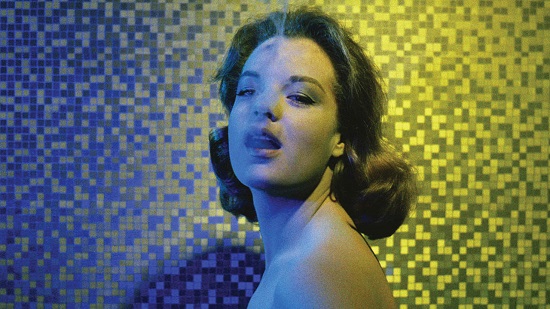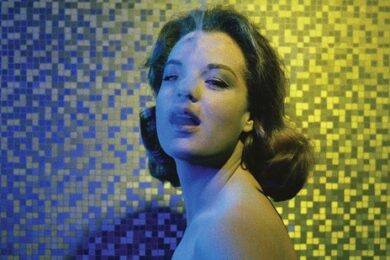Making a film is such a herculean effort that it’s frankly a wonder that any get made at all. The sheer strength of will involved in marshalling together scripts, props, crew, lighting, sound design, costumes and – oh God – actors seems nothing short of heroic to those outside of the system. So it’s no wonder then that among those recognised classics we all know and love there lurk the Great Unfinished. The ‘What ifs?’, ‘can-you-imagines?’ and ‘I-wishes’, that got so close only to fall at the final – or first – hurdle. Think of Jodorowsky’s madman’s dream to adapt and visualise Dune, Hitchcock’s daring and repugnant Kaleidoscope, Kubrick’s Napoleon or George Cukor’s Something’s Got To Give.
Among the greatest of the lost films is Henri-George Clouzot’s The Inferno, abandoned after three weeks of filming after a string of setbacks – including the director having a heart attack – and surviving only in dreamlike fragments and test shots, Inferno is one of the great ‘If-onlys’ of cinema. The fact that it never got made and Marley And Me did is living proof of an unjust universe.
But all is not lost. This weekend The Barbican is presenting a fresh take on The Inferno, having taken the remaining 12 hours worth of film and re-cut it especially for Rollo Smallcombe – one half of electronic duo Deeds – to provide a live soundtrack. The results are nothing short of exhilarating: a vivd psychedelic memoriam to a film that never was and a powerful work of art in its own right. I interviewed Rollo about the process of writing a score for the film and what we can expect to see on Sunday
How did you come to be connected with the event?
I was kindly invited to edit and create the score for Inferno by Marketa Uhlirova, Director of the Fashion in Film Festival- after being introduced by MUBI, who are co-producing the event. They’d seen a piece I’d made for Illuminations Festival and were keen to bring a contemporary spin to the archive footage. My music and videos are all heavily informed by film, so I jumped at the chance to create an original score.
Had you previously heard of The Inferno or was this your first exposure to it?
I knew some of Clouzot’s other work but knew little about The Inferno. My girlfriend had a picture from it on her old bedroom wall, but I only realised it when going through the rushes. The footage is incredible, such strong and vivid images- especially in the screen tests- so many great moments and stills can be cut from it.
Did the unfinished nature of Clouzot’s film present any challenges?
I was editing from 12 hours of film that was resurfaced by Serge Bromberg at Lobster Films- so the potential was huge. The footage has no dialogue or sound. Some of it is based around the narrative and the rest is highly experimental. When editing, it’s a case of getting the best of both aspects across whilst trying to weave a broad narrative thread to hook onto throughout the film. Also, due to all the screen tests there is essentially a film within a film, meaning you have a ‘making of’ story as much as the films’ intended plot. Added to that the knowledge of how the original production fell apart gives even the most simple shots added meaning.
You’re a film maker yourself, did you have any suggestions on how the footage should be assembled or was it presented to you as a finished piece?
The original rushes were presented like a pack of cards that had been very well shuffled. The first job was to collate the footage, there’s so much great content, that it was hard to get rid of any. We were keen to keep a close focus on the fantastic sixties fashion throughout the film, so Marketa and I shared our thoughts on which bits we felt were the strongest. I then began arranging it in an order which allowed the film to develop and grow- while keeping a kinetic feel and energy.
Is the material you are going to be performing all composed specially for the event?
Yes, 100% -that way the music can really connect with the new cut of the visuals. I wanted to create a soundscape that really responded to the video. I like to think the contrast between Clouzot’s original treatments and the electronic score feed and inform each other to offer a fresh take on both.
If you could provide a soundtrack to any film – unfinished or otherwise – what would it be?
I’d love to have worked on the new Blade Runner. It would be a chance to really push the boat out with the electronic score. Any Kubrick or Lars Von Trier film would be a dream too.
Fashion in Film: The Inferno Unseen is at the Barbican Centre on March 26
DEEDS debut EP Disorder’, will be released March 31st on Snap Crackle & Pop, available from Juno.



